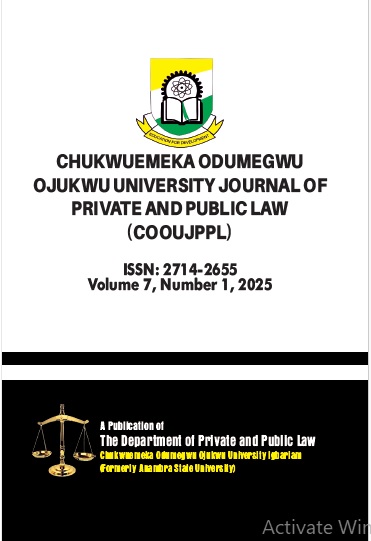ANALYSIS OF LEGAL REQUIREMENTS FOR THE PROOF OF THE OFFENCE OF RAPE IN NIGERIA
Abstract
This research critically analyses the legal requirements for proving the offense of rape in Nigeria, delving into its definition, essential elements, and the complexities associated with its prosecution. It highlights the key components of unlawful carnal knowledge, consent, and capacity, emphasizing that penetration, however slight, must be demonstrated for a successful conviction. The study also explores the various defenses available to the accused, including consent, lack of penetration, and the implications of marital status, while considering the legal presumption regarding minors. The aim of this research is to analyse the legal requirements of the proof of rape in Nigeria. This research adopted the doctrinal research methodology which included primary and secondary sources of information. The researcher found that the offence of rape under Nigerian law hinges on three main elements: unlawful carnal knowledge, absence of consent, and the capacity of both parties involved. Penetration, however slight, is a vital component for establishing the offence, and it must occur outside of a lawful marriage unless exceptions like judicial separation apply. The researcher recommended inter alia that authorities should implement training programs for law enforcement personnel to enhance their skills in conducting thorough investigations of sexual offenses, ensuring that all relevant evidence, including forensic and medical evidence, is collected and preserved. The researcher concluded that proving the offence of rape in Nigeria involves complex legal requirements, particularly around unlawful carnal knowledge and consent. Thus, victims face significant psychological harm and systemic barriers in seeking justice.

